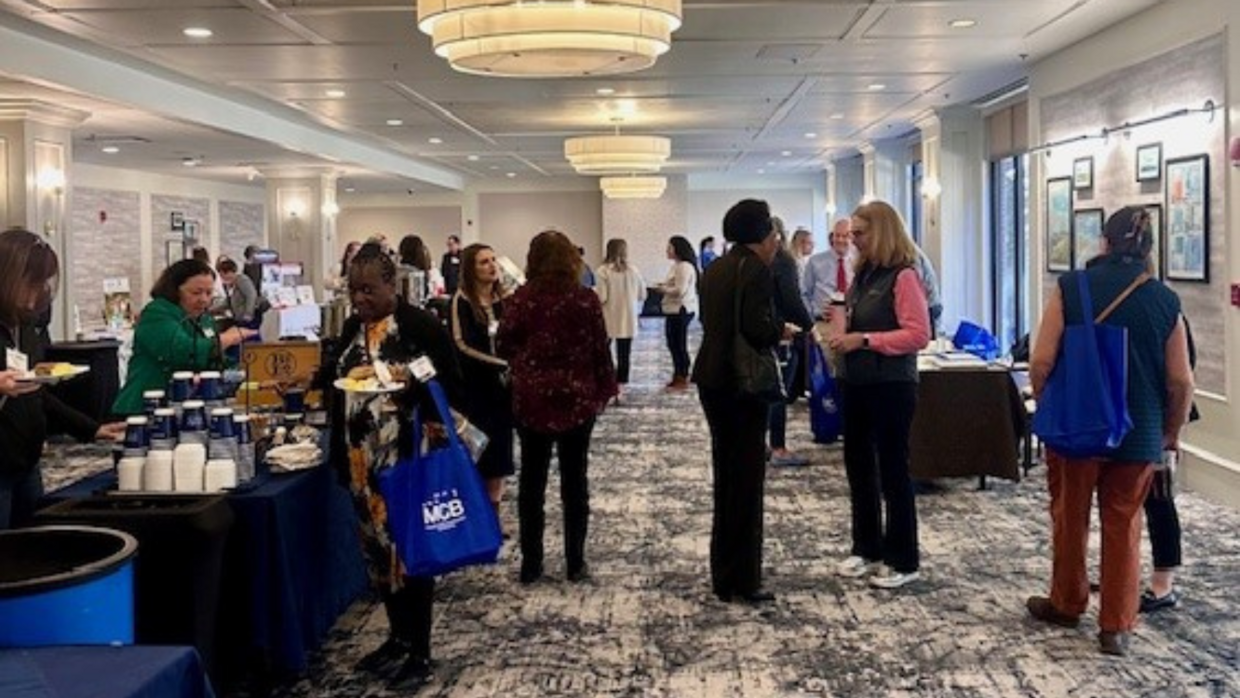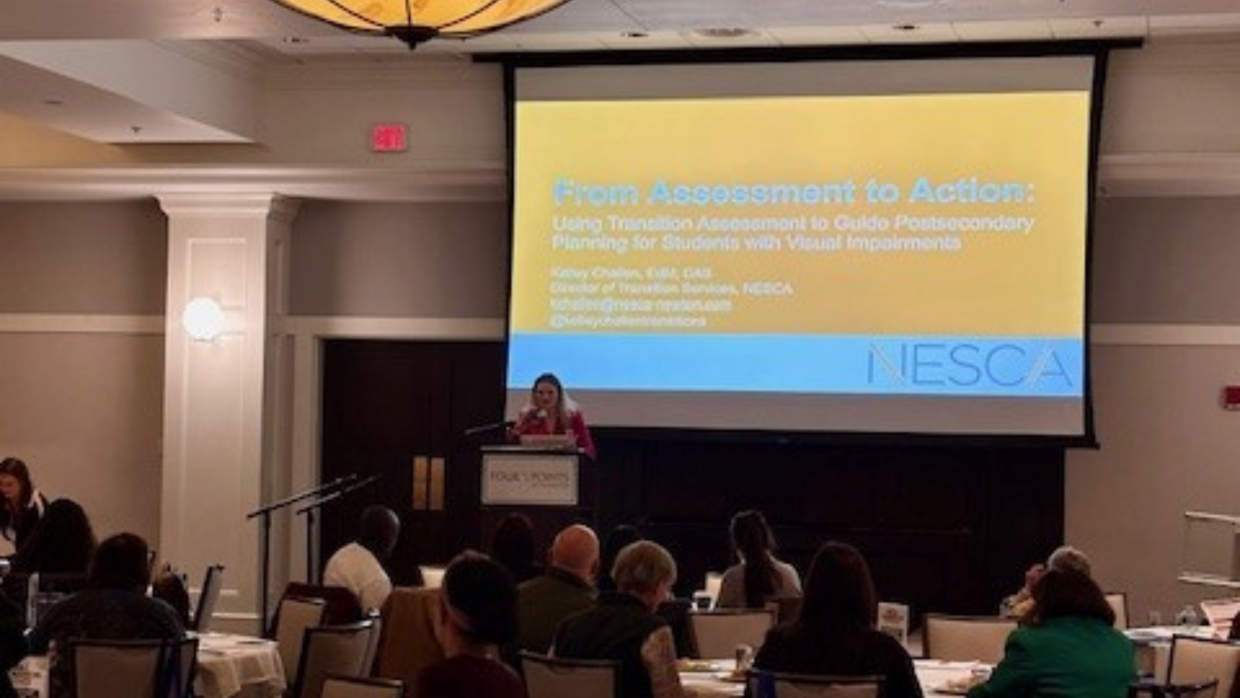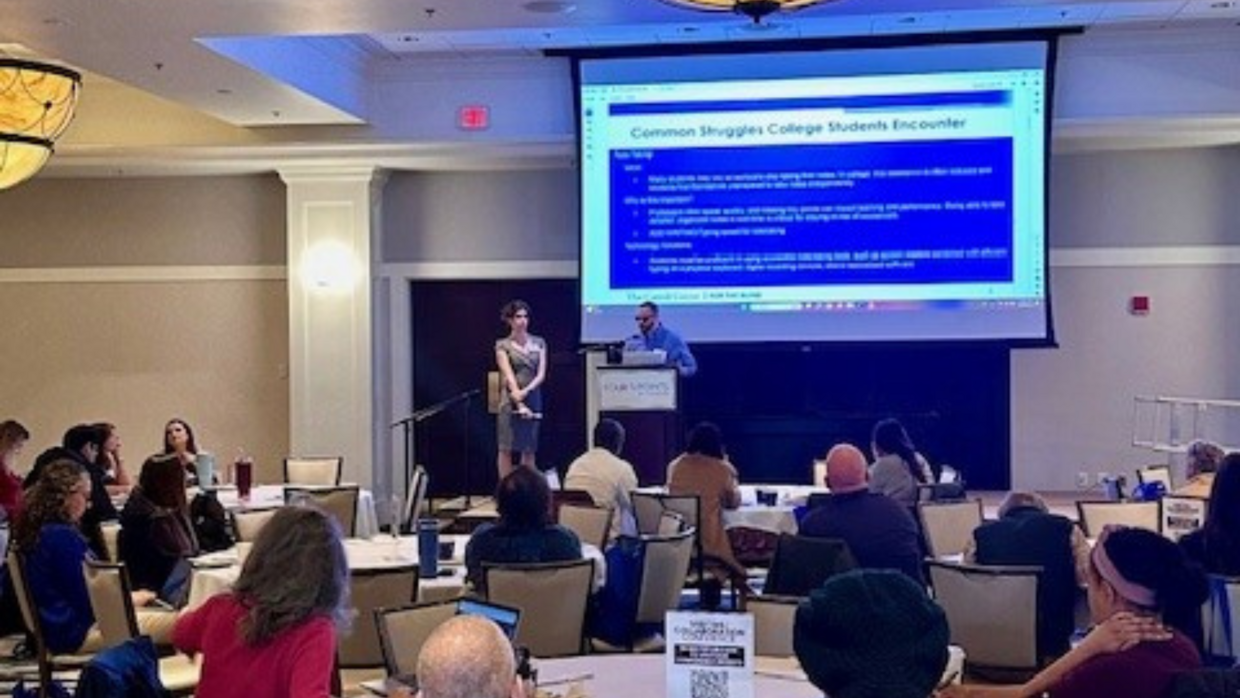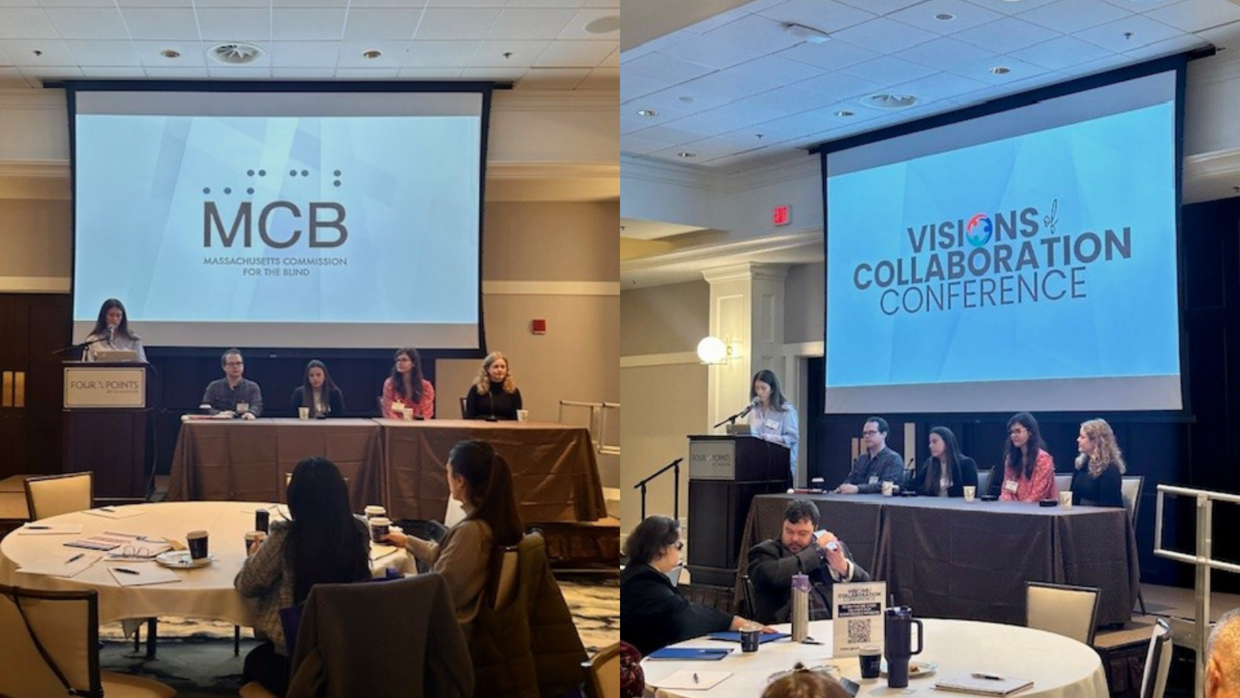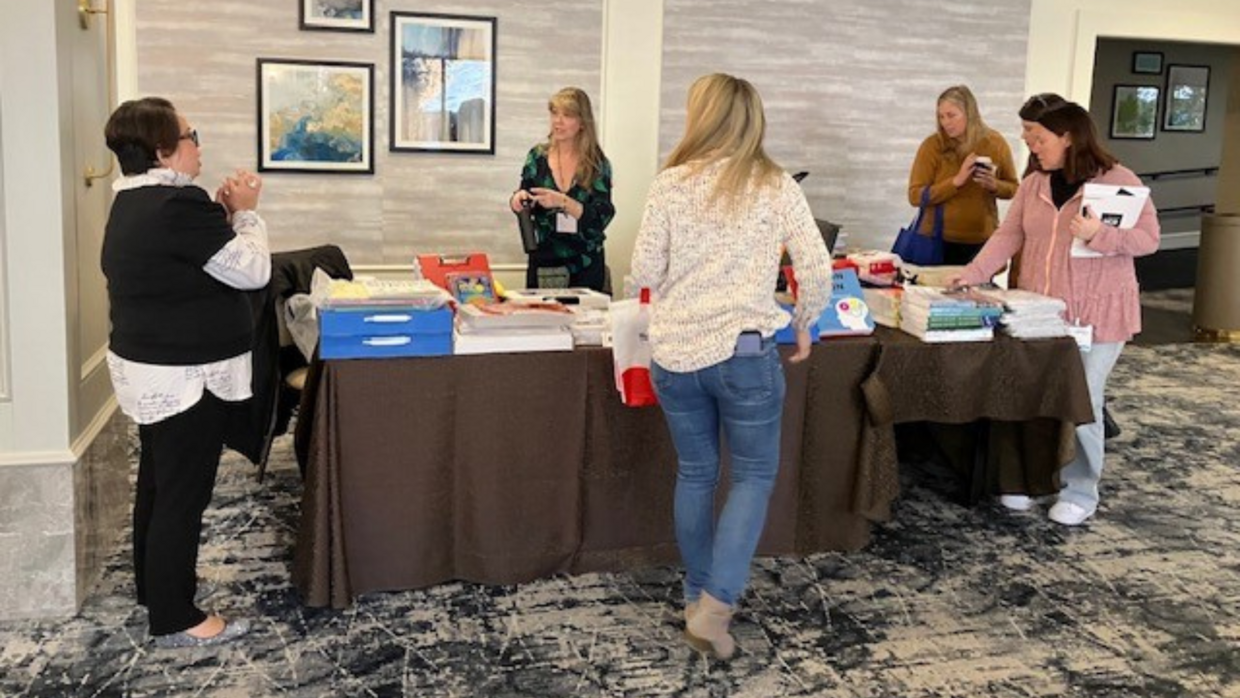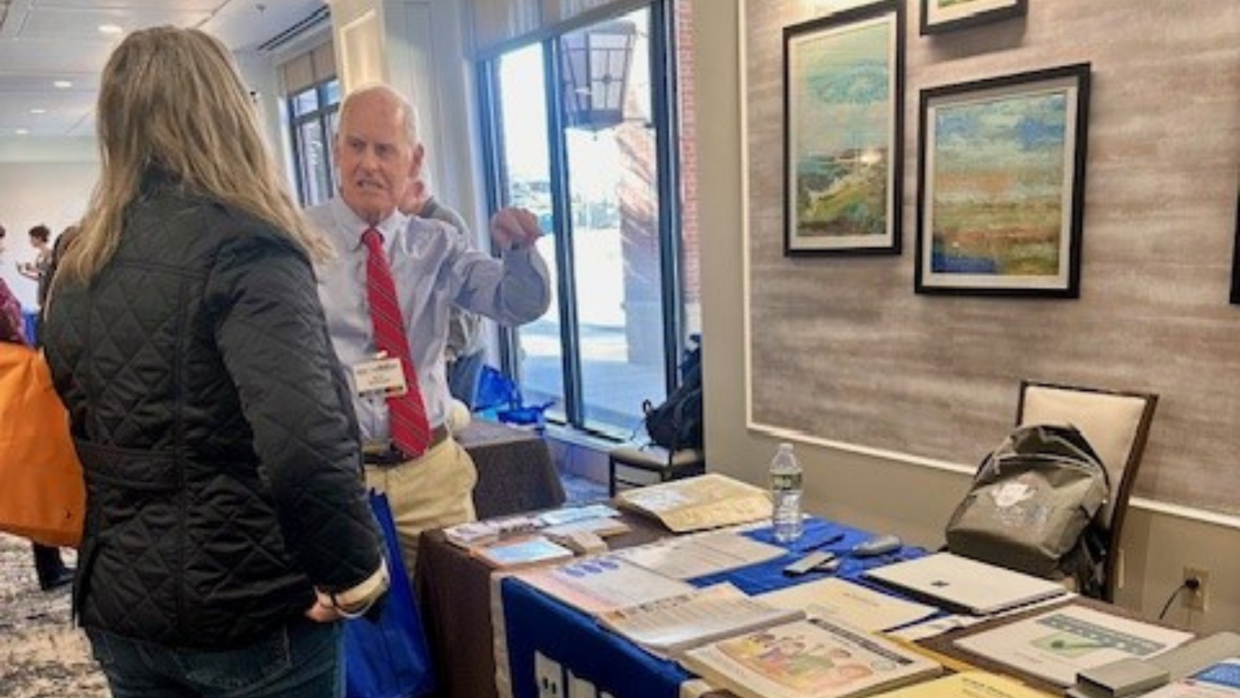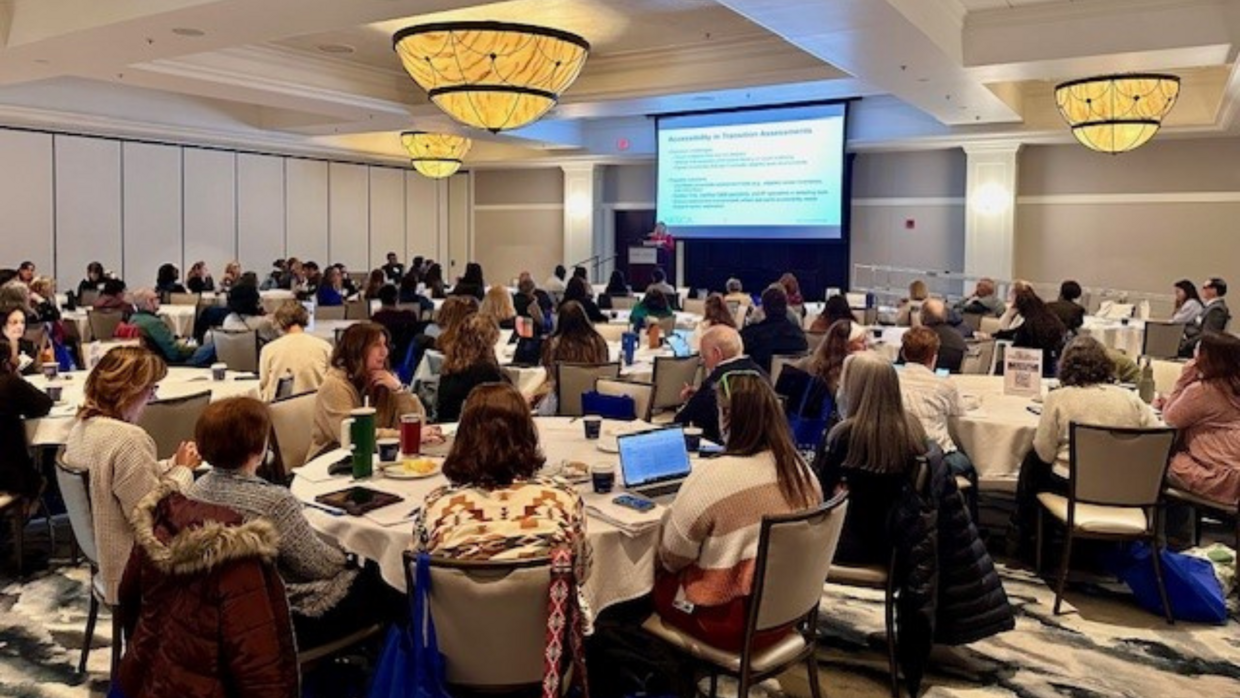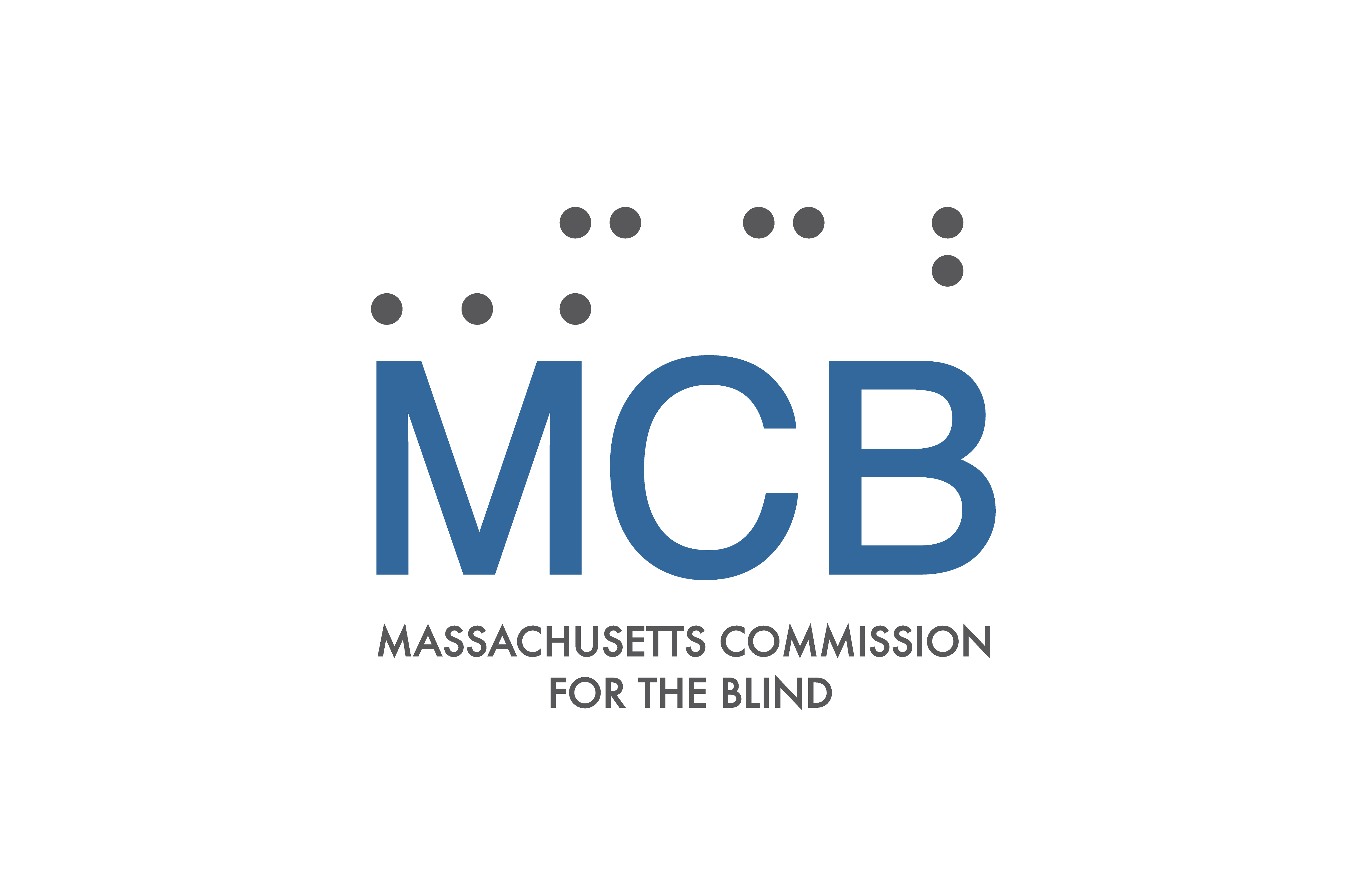- Massachusetts Commission for the Blind
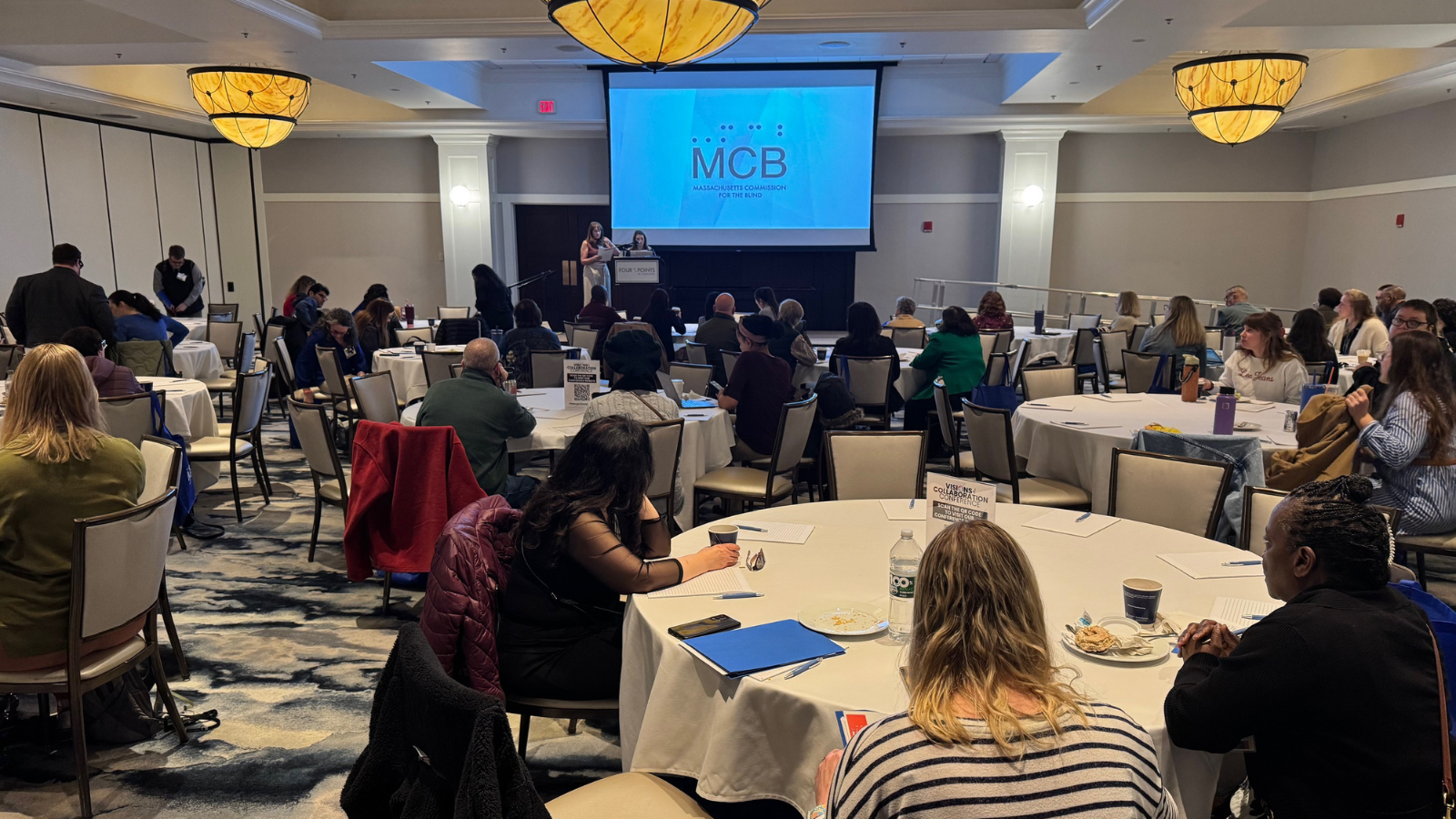
NORWOOD — The 2025 Visions of Collaboration Conference, hosted by the Massachusetts Commission for the Blind, brought together 125 educators, mobility specialists, and transition professionals for a day focused on supporting students who are legally blind with post-secondary education and employment opportunities.
This year’s event was filled with insightful presentations and valuable networking opportunities, offering attendees tools, resources, and strategies for supporting students in their post-secondary education and career journeys.
Presentation Highlights
The conference featured a series of expert-led presentations, addressing a range of topics designed to enhance the transition process for students:
From Assessment to Action: Using Transition Assessment to Guide Postsecondary Planning for Students with Visual Impairments
Presented by Kelley Challen, Director of Transition Services, Neuropsychology and Education Services for Children and Adolescents (NESCA), this session focused on federal transition assessment requirements and how these tools can be adapted for students with vision loss to ensure comprehensive postsecondary planning.
Supporting College Success: Technology Solutions
Led by Tina Laffer, Director of Outreach and Community Engagement, and Brian Switzer, Program Manager of Accessibility Technology, Training, and Research at The Carroll Center for the Blind, this presentation explored key challenges faced by students with vision loss in college settings and offered innovative technology solutions to support their academic success.
Reflecting on the Transition to Post-Secondary Education
Facilitated by Kara Sittig, Northeast Regional Director of the Massachusetts Commission for the Blind, this session engaged students who are legally blind in an interactive dialogue about their personal experiences transitioning to post-secondary education. Their candid reflections provided attendees with a deeper understanding of the barriers and strategies that contribute to a smooth transition.
Navigating the Future: How Today’s Technology Impacts Tomorrow’s Orientation & Mobility
Presented by Allyson Bull, Director of Orientation and Mobility at the Massachusetts Commission for the Blind, this session highlighted the latest advancements in assistive technology for orientation and mobility, showing how these tools can significantly enhance student independence in both educational and employment settings.
Assistive Technology & Low Vision Devices
Alexander Pooler, Director of Assistive Technology and Consumer Database Systems at the Massachusetts Commission for the Blind, provided a comprehensive overview of assistive technology tools and low vision devices. His session emphasized the importance of introducing these resources early in a student’s journey to ensure they are well-prepared for post-secondary education and the workforce.
Massachusetts Commission for the Blind: Services Beyond High School
Brittany Taylor, MetroWest Vocational Rehabilitation & Children’s Services Supervisor at the Massachusetts Commission for the Blind, shared valuable information about the programs and services available to students who are legally blind as they transition from high school to postsecondary education and employment.
Cortical/Cerebral Visual Impairment (CVI): What You Need to Know to Support Your Transition-Aged Student with Secondary Planning
Emily Cantillon, Lead Itinerant Teacher at Perkins Community Programs, and Leslie Thatcher, Director of Program Development and Strategy at Perkins Transition Center, provided insights into Cortical/Cerebral Visual Impairment (CVI) and how to support students with CVI as they navigate post-secondary environments, from college to work.
Exhibitors: Supporting Resources
In addition to the presentations, the conference hosted a dozen exhibitors sharing resources to support students who are legally blind. Exhibitors included:
- Accessible Instructional Materials (AIM) Library
- Adaptive Sports New England
- Boston College Supported Employment Program
- Learn, Earn, and Prosper (LEAP)
- Massachusetts Commission for the Blind Orientation & Mobility
- MCB/DDS Partnership Project for Orientation & Mobility/Low Vision Services
- National Braille Press
- Perkins School for the Blind
- Polus Center for Social & Economic Development
- The Carroll Center for the Blind
- Work Without Limits
The conference was a celebration of the power of collaboration, with professionals from across Massachusetts coming together to share their expertise and passion for supporting students who are legally blind. This event reinforced the importance of a collective effort to ensure students are equipped with the resources, support, and opportunities they need to succeed in their academic and professional lives.
The conference also featured powerful moments of reflection, especially from students who shared their personal stories about transitioning to post-secondary education. Their honesty and insights served as a reminder of the challenges faced by students who are legally blind and the vital role each of us plays in creating a more inclusive and supportive environment.
We look forward to continuing to work together to advance educational and employment opportunities for students who are legally blind and to making the Visions of Collaboration Conference an even more valuable experience in the years to come.
